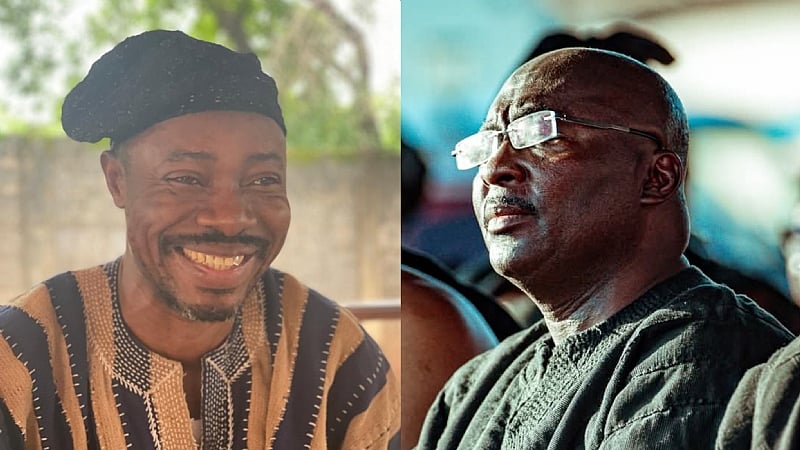The Northern Regional Coordinator for Kennedy Agyapong’s campaign, Alhaji Baba Gushegu, has called on former Vice President Dr. Mahamudu Bawumia to withdraw from the New Patriotic Party’s (NPP) upcoming flagbearership contest, scheduled for January 31, 2026.
In a press statement copied to Radio Tamale, Alhaji Baba argued that Dr. Bawumia’s withdrawal would be a necessary step to promote peace and unity within the party as it prepares to choose its next presidential candidate for the 2028 general elections.
His appeal comes as the internal contest intensifies, with several leading figures within the NPP expressing interest in succeeding President John Dramani Mahama at the end of his tenure.
Below is a full statement:
Why Dr. Bawumia Must Resign for Party Unity and Renewal
The New Patriotic Party (NPP) stands at a defining moment in its political journey. Following its painful loss in the 2024 general elections, the need for honest reflection and self-correction is urgent. At the heart of this setback is the party’s presidential candidate for the last elections, whose continued leadership threatens the unity, credibility, and future of the NPP. Here are clear reasons why he must step down in the interest of the party.
He was loudly hailed as the most popular Vice President in Ghana’s Fourth Republic, with a national appeal that cut across religious and ethnic lines. Yet, when given the ultimate test at the polls, he lost woefully, marking the steepest presidential vote drop in NPP’s history—from 51.59% in 2020 to 38% in 2024. Popularity that doesn’t translate into victory cannot be the foundation of future campaigns.
First, he contested with all the state and party machinery behind him. He had the full backing of government, a sitting president, and incumbency resources. Yet, despite this enormous advantage, he lost miserably to the opposition. This proves that resources alone cannot carry a candidate with a weak connection to the base.
Second, he campaigned for nearly eight years—long before the primaries even began. From digital town halls to public lectures, he had positioned himself as the “next in line.” In contrast, Kennedy Agyapong campaigned for just four months, yet mounted a formidable challenge in the primaries. This exposed a lack of deep-rooted support and overreliance on establishment power.
Third, he failed to deliver dominance even in his own region. In the North, where his candidacy was expected to tilt the balance, he ended up splitting seats with former President John Mahama. For a candidate whose identity was framed around regional appeal, this is a major strategic failure.
Fourth, his biggest bragging rights failed him. He was often praised for winning support among Muslims and Zongo communities. Yet, in the 2024 election, he lost polling stations around key mosques, a strong signal that identity politics alone cannot win elections if it’s not backed by real hope and delivery.
Fifth, the NDC’s message to the NPP at Ablekuma after the elections was telling: “Next time, bring a candidate who can defend the will of the people strategically and fiercely.” This was not just a jab—it was a warning. He was seen as too soft, too accommodating, and lacking the political firepower to withstand opposition pressure or defend the grassroots. In an era where political battles are fierce and tactical, the NPP needs a bold, assertive, and trusted warrior—not a gentle technocrat disconnected from the base.
The results he got in the 2024 elections were an outright rejection by Ghanaians. It was a technical knockout, and this can only mean the country is not ready to make him their president.
In conclusion, for the NPP to rebuild, it must first heal. That healing begins with leadership accountability and responsibility. His resignation is necessary—not as punishment, but as a sacrifice for unity and renewed hope, especially at all levels of the party.
The base is restless.
The country has spoken.
The party must listen.
Northern Regional coordinator (Kennedy Agyapong Team)
Alhaji Baba Gushegu


